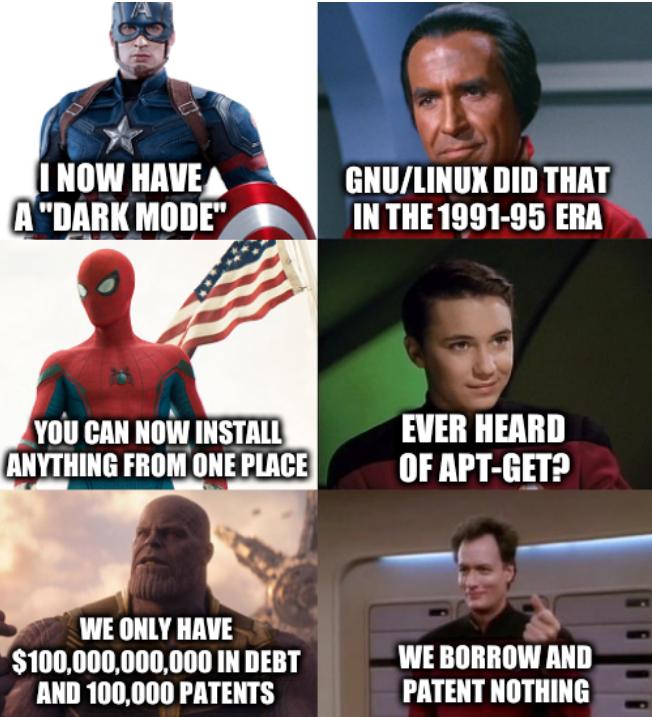Contrary to Common Myths, Free Software and GNU/Linux Are Typically Way Ahead of Proprietary Software (Which Copies and Then Patents)
- Dr. Roy Schestowitz
- 2020-07-27 16:23:59 UTC
- Modified: 2020-07-27 16:23:59 UTC
But there's no time to properly assess prior art and GNU/Linux sites like Techrights are blocked by the European Patent Office (EPO)

Summary: Examiners are urged/pressured to assess so-called 'inventions' in the domain of software; not only are these not patentable (patent-ineligible) but most of the time they're not novel either (the real inventors never patented these and would not bother, either)
THE TRUTH of the matter is, software patents should not be granted in Europe. But corrupt management nowadays compels examiners to do so anyway; both António Campinos and Benoît Battistelli block Techrights and, as Florian Müller pointed out half a decade ago, this means that they limit examiners' access to prior art. What kind of patent office is this? Great Firewall of China? Eponia's copy of it?
Free software enthusiasts will likely be able to explain the history of GNU, which predates Linux by nearly a decade. Well before Windows 95 or even Windows 3.11 (when the monopoly started to gather momentum) there were already decent systems, both from the GNU and BSD camps (the UNIX/POSIX realm). There was also Apple, but it was very expensive. Nowadays it seems increasingly evident that Apple and Microsoft mostly imitate and rarely innovate; but guess who gets the patents at the end? The first to apply, not the first to implement or 'invent'...
A meme with examples:

"We borrow and patent nothing..."
That sums it up.
Free software isn't crafted based on proprietary code, whereas the opposite is sometimes true. Companies like Apple and Microsoft habitually 'borrow' code that's Free/libre to craft proprietary ripoffs. The opposite isn't possible, at least not legally, and it's easy to get caught; it's almost unavoidable because a Free software developer's code lays bare for all to see (and for companies to compare to their own). Remember the SCO lawsuit? How did that work out for SCO?
Software patents are in general a very dumb idea because software changes very fast and things are copied a lot, typically without it infringing any law. It's time to put an end to such patents,
completely.
⬆


